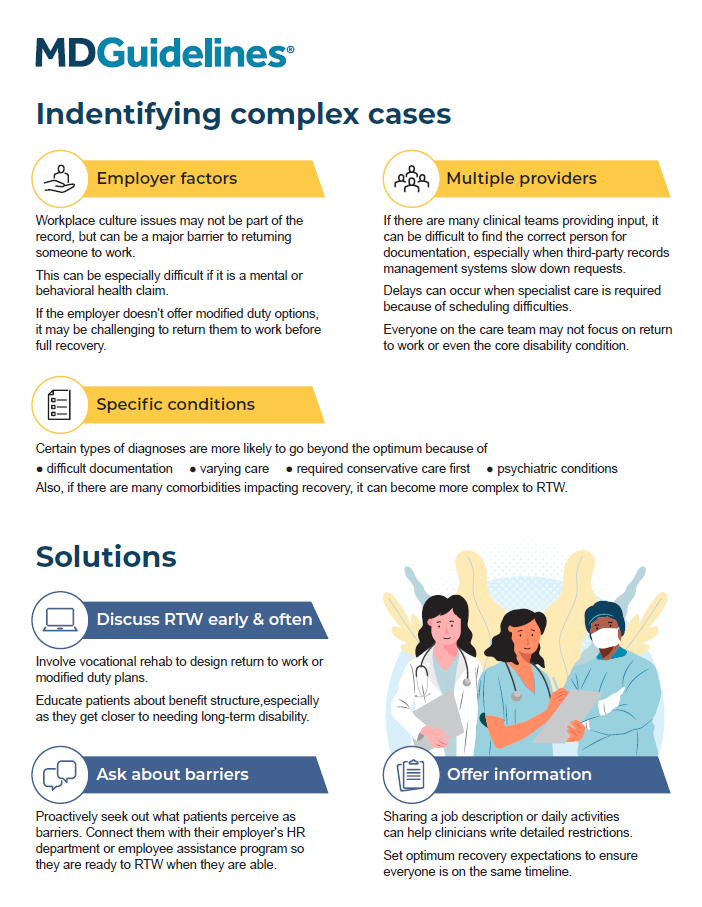
Employer Factors
Workplace culture issues may not be part of the record but can be a major barrier to returning someone to work. This can be especially difficult if it is a mental or behavioral health claim. If the employer doesn’t offer modified duty options, it may be challenging to return them to work before full recovery.
Multiple providers
If there are many clinical teams providing input, it can be difficult to find the correct person for documentation, especially when third-party records management systems slow down requests. Delays can occur when specialist care is required because of scheduling difficulties. Everyone on the care team may not focus on return to work or even the core disability condition.
Specific conditions
Certain types of diagnoses are more likely to go beyond the optimum because of:
- difficult documentation
- varying care
- required conservative care first
- psychiatric conditions
Also, if there are many comorbidities impacting recovery, it can become more complex to RTW.
Discuss RTW early & often
Involve vocational rehab to design return to work or modified duty plans. Educate patients about benefit structure, especially as they get closer to needing long-term disability.
Ask about barriers
Proactively seek out what patients perceive as barriers. Connect them with their employer’s HR department or employee assistance program so they are ready to return to work when they are able.
Offer information
Sharing a job description or daily activities can help clinicians write detailed restrictions. Set optimum recovery expectations to ensure everyone is on the same timeline.
Download our popular infographic on Complex Return to Work Cases here.

